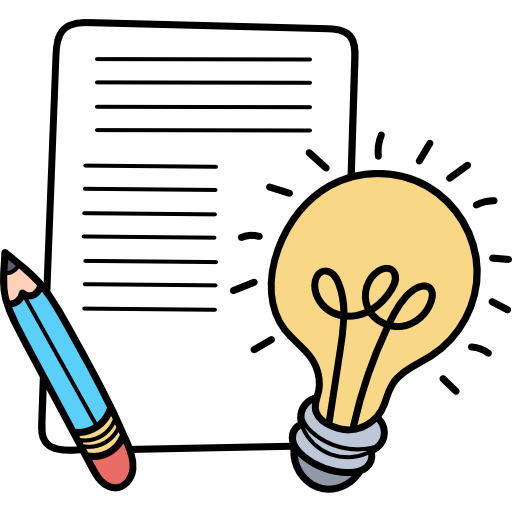كتاب الطالب 2020 2021 تربية أخلاقية منهج إنجليزي صف حادي عشر فصل ثالث
Ignorance, Stereotyping and Judgement
Think about this scenario
Mansour is an Emirati man. He books to go on holiday to a foreign country. He has been told there is a lot of opportunistic crime such as pick-pocketing in this place. He decides to go ahead with his plans, because there are some beautiful sights to see, and he has a friend from school days who lives there as well. Mansour arrives at his destination, checks into a hotel, and decides to walk around the local streets for a few hours and find something suitable to eat. As he walks past a local shop, an old woman approaches him suddenly from a doorway. She seems to be reaching out to him. Remembering the warnings he has received about pick-pocketing, he quickly steps back and loudly tells the woman to get away from him, thinking that she is about to steal his wallet and phone. She stops, hesitates, and heeds his instruction
As Mansour continues walking, he decides to text his friend to tell him what has just happened. But his phone is gone! Furious, he turns around and rushes back, only to find that the woman has disappeared! The owner of the shop steps out of the doorway. He asks Mansour if he has lost his phone. Relieved to find a sympathetic ear, Mansour says 'Yes,' and starts describing the woman who stole it. He assumes that the shop owner already knows that the woman is a thief because she has probably robbed several other tourists outside his shop. The shop owner shakes his head quietly and asks Mansour if his phone has a blue cover. He nods his head. The shop owner produces the phone from behind his back and hands it to Mansour. Mansour is amazed and thanks the man graciously, thinking he must have run after the thief and retrieved it. The owner looks at Mansour respectfully and then explains that the phone had fallen out of Mansour's pocket as he was walking. The woman is a regular customer at the shop. She saw the phone fall and rushed out of the shop to pick it up. She tried to approach Mansour to return it, but he responded angrily. She had been warned by friends of hers that Arab men are not allowed to talk to women they do not know, and so she retreated and left the phone in the shop so that if Mansour returned to look for it, the shop owner - a man- could give it back to him
HOW CAN WE BECOME ENGAGED GLOBAL CITIZENS
We have explored values that support our personal development as global citizens. But values remain dormant until we use them to inform action. One of the attributes of being a global citizenship is action - engaging in connections and collaboration with other people
Empathy
If we have empathy for other people, we can assist them in relation to their needs and challenges, because we will understand what the most appropriate and relevant support is that they need. This is related to the idea of 'walking in someone else's shoes'. In the past, some global aid initiatives have harmed rather than helped the target population it was meant to aid
For example, there have been cases of baby formula donations being made to mothers in famine conditions, without realising that the formula to feed the babies would need to be mixed with safe drinking water - a condition that is taken for granted in many countries that provide international aid. If mothers only had access to contaminated water, without facilities to purify it, then babies drinking the formula could die from the effects of diarrhoea. To truly understand the needs and experiences of other people, we need to pay attention, observe, listen, and ask meaningful questions in the process of collaborating with or assisting them
Discussion Point
Discuss how people can increase their capacity for empathy
WHAT IS SOCIAL JUSTICE
Social justice refers to the equitable distribution of opportunities, wealth, access to resources and privileges in a society. It does not mean that everyone in a society has the same amount of wealth, or that everyone is the same'. It is more about equal opportunity for people to meet their needs and access resources and services, irrespective of their culture, race, gender or economic or educational status
At a very basic level, we may say that everybody in a society should have equal access to basic education, healthcare, safety, shelter, adequate nutrition and opportunities to work and contribute to the society in appropriate ways. Another common aim of social justice is eradication of poverty.
Social justice is connected to human rights. As you have learnt, the United Nations Universal Declaration of Human Rights outlines the fundamental rights that most people would agree must be accorded to all human beings. In societies where there is a high degree of social justice, there also tends to be a high degree of peace and respect among people. Where there is insecurity or inequitable access to basic resources, conflict and injustice may result, as you saw in Lesson 2 with the case study about xenophobia in South Africa. Social justice exists where basic human rights are respected and upheld, and where there is no prejudice or discrimination
What Can we do Locally to Promote Social Justice
The citizens and government of the UAE have a respected history of being mindful of the circumstances of groups of people who may be described as less fortunate, and taking steps to provide assistance where possible. There are many philanthropic people living in the UAE who have set up foundations and projects to impact directly on development and social justice issues. These are people who run programmes and initiate actions for the greater good of humankind. In Unit 6 of Grade 10, you explored what it means to be an active citizen. There are many ways that you can join others in actively getting involved in social justice promotion - starting with your own development as a young global citizen
The most important way to approach this is firstly to be aware of the programmes, channels and forums that are available to you, and secondly, to pursue the opportunities that they present to you to get involved. In this process, you should develop your own skills and talents to enable you to have the confidence and self-management strategies to be a role model for social justice, and to engage in debates and actions related to social justice issues. Being a responsible and engaged global citizen requires a high level of personal empowerment and awareness
Government Programmes for Youth Development in the UAE
The government of the UAE has specifically emphasised the role of youth empowerment in its development initiatives. This is a key aspect of Vision 2021. The federation sees youth as the innovators and problem solvers of the future. That's you! To be an innovator, you need to know how to identify problems, think critically about them, and then collaborate in appropriate ways to devise and implement new ways of dealing with or solving these problems. The government has expressed a specific interest in addressing the needs and challenges of youth, as expressed by youth




